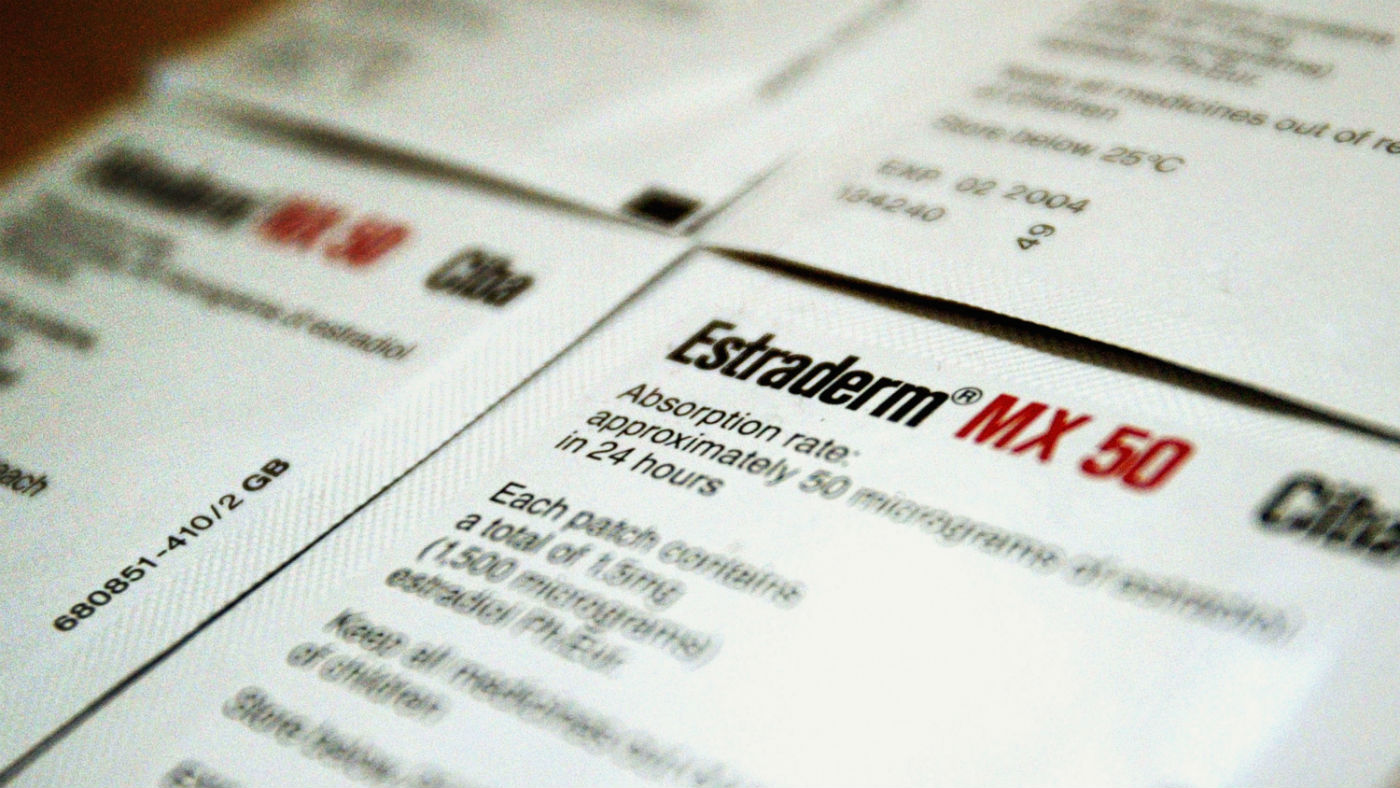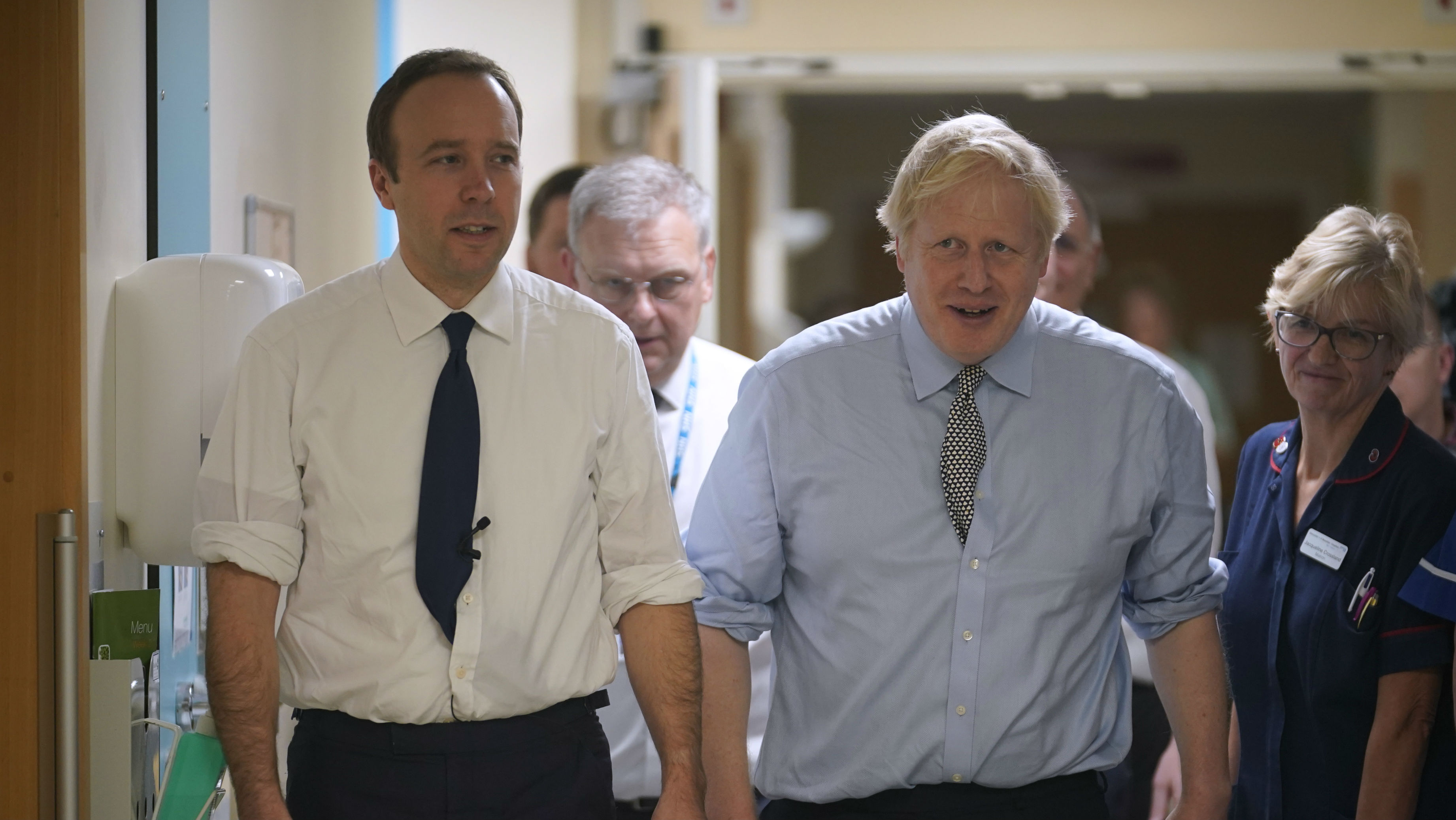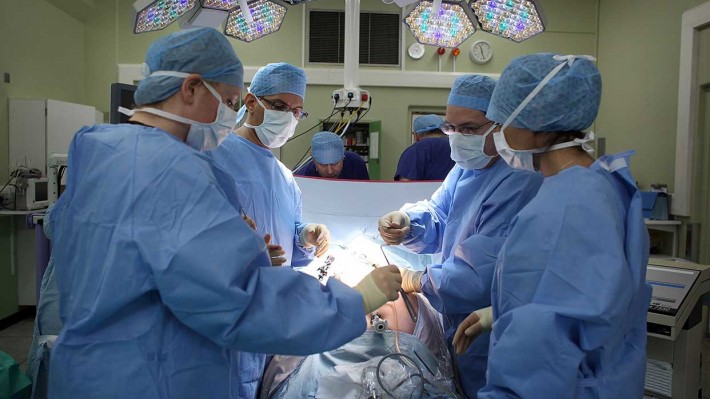What are the pros and cons of taking HRT?
New study indicates therapy responsible for 5% of all breast cancers in the West

A free daily email with the biggest news stories of the day – and the best features from TheWeek.com
You are now subscribed
Your newsletter sign-up was successful
Hormone replacement therapy (HRT) may raise the risk of breast cancer in women by a third, a new study has found.
Researchers at Oxford University analysed data from more than 108,000 HRT users who had developed breast cancer and, in a report published last week, revealed that around one in 20 cases of breast cancer in the UK are due to HRT.
These results suggest the risk of breast cancer is double what women are currently being told, and means that as many as a million cases of breast cancer could have been caused by HRT since the 1990s, the BBC reports.
The Week
Escape your echo chamber. Get the facts behind the news, plus analysis from multiple perspectives.

Sign up for The Week's Free Newsletters
From our morning news briefing to a weekly Good News Newsletter, get the best of The Week delivered directly to your inbox.
From our morning news briefing to a weekly Good News Newsletter, get the best of The Week delivered directly to your inbox.
Furthermore, the scientists revealed that this increased cancer risk lasts for more than a decade after treatment stops.
The Medicines and Healthcare Products Regulatory Authority (MHRA) said women who have used HRT in the past or use it currently should be “vigilant” for signs of breast cancer in the light of the findings, while the Royal College of GPs urged women to consult their doctor if they are concerned.
“Women should be aware of this new information, so that it can be considered with the other risks and benefits of using HRT,” the MHRA said recently. “No medicine is completely without risk, but it is important for women to be able to make an informed decision about the risks and benefits that are appropriate for them.”
The Telegraph notes that the recent report is “not the first time that HRT has been in the headlines this month”. Last week it was revealed that so-called compounded bioidentical HRT, a tailor-made form of the treatment thought to be more “natural”, is unsafe, expensive and could increase the risk of developing cancer
A free daily email with the biggest news stories of the day – and the best features from TheWeek.com
And just a few months ago, the drug was linked to a potentially increased risk of Alzheimer’s.
Here, The Week looks at the benefits and potential risks associated with HRT:
What is HRT?
First introduced in the 1940s, hormone replacement therapy (HRT) is used to relieve the symptoms of menopause such as hot flushes, night sweats, mood swings and lack of libido by replacing the hormones that are at a lower level.
Treatments can take the form of gels, patches or - most commonly - tablets.
The BBC says “most experts agree that HRT is a good and safe treatment - but there are some small potential risks”.
The cons
Long regarded as a wonder drug that women would take well into their 70s, HRT’s reputation was badly damaged by an influential 2002 report that showed it could, in some cases, increase the risk of heart disease, strokes, blood clots and breast cancer. It led to a 50% decline in HRT prescriptions.
The findings of the Million Women Study were followed by a separate report conducted in the US in 2003, which found women taking combined oestrogen-progestogen HRT had a 26% higher risk of breast cancer.
And this week’s study upped the ante even further, revealing that scientists could now be certain that HRT is a cause of about 5% of breast cancers.
“These are cause and effect relationships,” said Sir Richard Peto, professor of medical statistics and epidemiology at the University of Oxford. “It is not just an association that exists, because the menopausal hormone therapy is causing the increase in breast cancer.”
The news comes just five months after a study in Finland found evidence of a link between HRT and a 9% to 17% increased risk of Alzheimer’s.
The association between the two was “highest for women who used hormones for 10 years or more and those who used an oral combination of estrogen-progestogen rather than estrogen alone”, CNN reports.
As well as the health risks, NetDoctor says “some women do not like having periods re-introduced if they have stopped, although new preparations now allow for bleed-free treatment”.
The pros
HRT therapy works by boosting declining hormones and levelling out the peaks and troughs to relieve the symptoms of menopause and protect against longer-term health risks, such as osteoporosis and heart disease, which can rise significantly in women after the age of 50.
According to the American College of Obstetricians and Gynecologists (ACOG), HRT can also combat vaginal dryness, protect against bone loss that can lead to hip and spine fractures and reduce the risk of colon cancer.
A recent study indicated that women on HRT tend to have less body fat. It may also play a role in preventing women from developing type 2 diabetes.
Haitham Hamoda, a consultant gynaecologist who leads the menopause unit at King’s College Hospital London and is a member of the British Menopause Society’s medical advisory council, tells the Daily Mail the health risks of HRT are actually “very small when put into context”.
However, studies have shown that age is factor when assessing risk, which increases if HRT is taken later in life.
Dr Heather Currie, a consultant gynaecologist at Dumfries and Galloway Royal Infirmary in Scotland, says “the key is not to wait until more than ten years after the menopause before thinking about starting HRT”.
“But right up to the age of 60, regardless of when HRT was started, and for many women even after age 60, the benefits outweigh the risk,” she adds.
This view is supported by the latest guidelines from the British Menopause Society.
Dr Helen Stokes-Lampard, a GP specialist in women’s health and spokesman for the Royal College of General Practitioners, says: “HRT is not a villain: it is a drug with benefits and harms. Eighty per cent of women will suffer symptoms at menopause, and for 20 per cent of women the symptoms will be severe. Research the pros and cons, then talk to your GP about whether you want HRT and whether you are suitable for it.”
What are the alternatives?
The BMJ report found that there was no increased risk for women using HRT gels, patches or creams.
The study concluded this was the safest form of HRT treatment yet it appeared “underused”, with just 20% of prescriptions for this type of therapy.
Progesterone can also be administered via the Mirena coil to balance the effect of extra oestrogen and reduce the risk of endometrial cancer.
Women who are heavy smokers, very overweight, or at high risk of stroke or have high blood pressure are also advised to speak to their GP before starting HRT treatment.
For those who deem the risks too great, but still want to mitigate the effects of menopause, there are other synthetic and natural alternatives.
Some of these newer formulations, which are created from plants such as soya and wild yam, apparently mimic more closely the action of the body’s hormones and may lower the risk of side-effects such as blood clots and stroke, and possibly breast cancer, says Dr Hamoda.
Women have been urged not to worry about a recently published study that links hormone replacement therapy (HRT) with an increased risk of Alzheimer’s.
The study, published on Tuesday in the British Medical Journal, compared records of 85,000 postmenopausal Finnish women who had developed Alzheimer’s disease with the same number who had not, and found a 9% to 17% increased risk of Alzheimer’s among those who took HRT systematically.
https://www.bmj.com/content/364/bmj.l665
The association between the two was “highest for women who used hormones for 10 years or more and those who used an oral combination of estrogen-progestogen rather than estrogen alone”, CNN reports.
https://edition.cnn.com/2019/03/06/health/alzheimers-hormone-replacement-therapy-study/index.html
But experts in the UK have warned women not to be alarmed by the news, arguing that the study was observational and, as a result, it “cannot be said for certain that other factors had not affected the results”, the BBC says.
https://www.bbc.co.uk/news/health-47471142
David Reynolds, chief scientific officer of Alzheimer's Research UK, said that although the study “suggests that women who received some forms of hormone therapy were slightly more likely to be diagnosed” with Alzheimer's, it “doesn't show that hormone therapy is responsible for this increased risk”.
“We would urge patients not to be alarmed by this research - as the researchers state, any risk is extremely low - and if they are currently taking HRT, to continue doing so as prescribed by their doctor,” Helen Stokes-Lampard, chairwoman of the Royal College of GPs, added.
The Week looks at the benefits and potential risks.
-
 Magazine solutions - February 27, 2026
Magazine solutions - February 27, 2026Puzzle and Quizzes Magazine solutions - February 27, 2026
-
 Magazine printables - February 27, 2026
Magazine printables - February 27, 2026Puzzle and Quizzes Magazine printables - February 27, 2026
-
 ‘The forces he united still shape the Democratic Party’
‘The forces he united still shape the Democratic Party’Instant Opinion Opinion, comment and editorials of the day
-
 Neanderthal gene ‘caused up to a million Covid deaths’
Neanderthal gene ‘caused up to a million Covid deaths’Speed Read Genetic tweak found in one in six Britons means cells in the lungs are slower to launch defences
-
 Legalising assisted dying: a complex, fraught and ‘necessary’ debate
Legalising assisted dying: a complex, fraught and ‘necessary’ debateSpeed Read The Assisted Dying Bill – which would allow doctors to assist in the deaths of terminally ill patients – has relevance for ‘millions’
-
 Vaccinating children: it’s decision time for the health secretary as kids return to school
Vaccinating children: it’s decision time for the health secretary as kids return to schoolSpeed Read Sajid Javid readying NHS England to roll out jab for children over 12, amid fears infections will rocket
-
 ‘Vaccination blunts, but does not defeat’: exploring Israel’s fourth Covid wave
‘Vaccination blunts, but does not defeat’: exploring Israel’s fourth Covid waveSpeed Read Two months ago, face masks were consigned to bins. Now the country is in a ‘unique moment of epidemiological doubt’
-
 Thousands told to self-isolate in Covid app pinging error, claims Whitehall whistleblower
Thousands told to self-isolate in Covid app pinging error, claims Whitehall whistleblowerSpeed Read Source says Matt Hancock was privately told of the issue shortly before he resigned as health secretary
-
 Record 5.45m people on NHS England waiting lists
Record 5.45m people on NHS England waiting listsSpeed Read Health chief warns that crisis is nearing ‘boiling point’ as backlog grows
-
 Covid testing: the ‘great new game of holiday roulette’
Covid testing: the ‘great new game of holiday roulette’Speed Read On one day last week, the price of a private PCR test ranged from £23.99 to £575
-
 San Marino is first European country to offer ‘vaccine vacation’
San Marino is first European country to offer ‘vaccine vacation’Speed Read Tiny landlocked nation to give Russian Sputnik vaccine to paying tourists